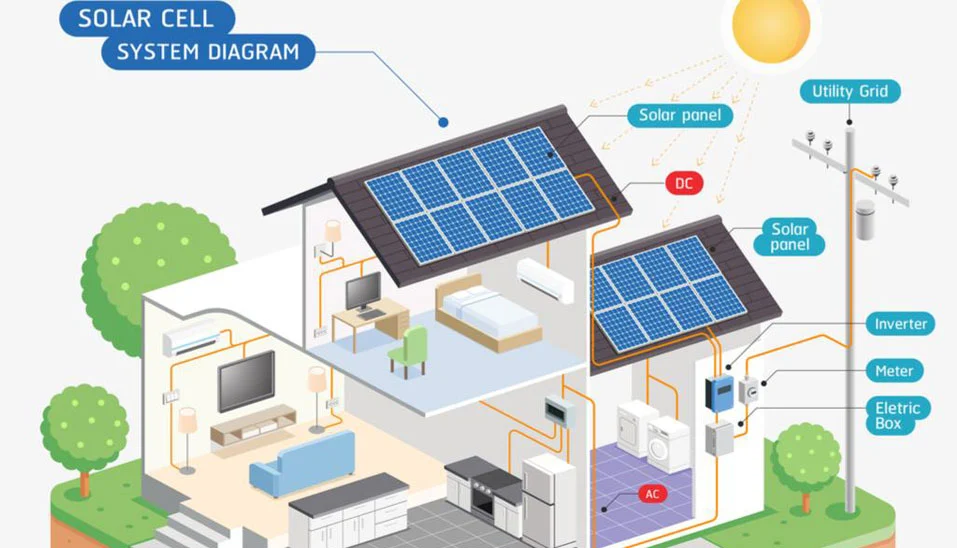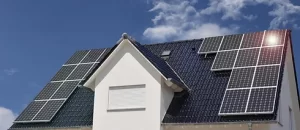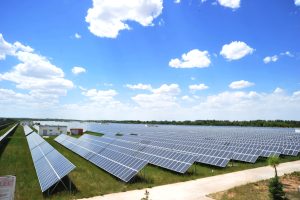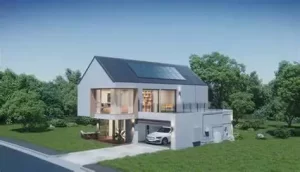The Future of Home Energy Storage: Exploring Technological Advances and Market Potential in All-in-One Systems
As global demand for sustainable energy continues to rise, home energy storage systems are gradually becoming the core of household energy management. These systems not only provide backup power but also help reduce electricity bills and increase energy self-sufficiency by storing renewable energy, such as solar power.
Technological Advances
The development of home energy storage technology is primarily focused on improving storage efficiency, reducing costs, and enhancing system integration. For example, companies like Pylon Technologies are developing batteries with higher energy densities to achieve longer discharge times and greater storage capacity. Meanwhile, innovations in inverter technology are making the integration of photovoltaic (PV) systems with storage systems more efficient. Hybrid inverters, for instance, can handle both PV generation and battery storage, simplifying system design and lowering installation costs.
Market Potential
The growth of the home energy storage market is driven by several factors, including:
- Economic benefits in high electricity rate regions: In areas with high electricity costs, such as Germany, Japan, and Australia, home energy storage systems can significantly reduce electricity bills, leading to rapid market growth.
- Policy support: Many countries offer tax incentives and subsidies to encourage the installation of home storage systems. For example, China’s “14th Five-Year Plan for New Energy Storage Development” outlines clear support for new energy storage.
- Increased environmental awareness: As environmental consciousness rises, home energy storage systems, as a clean energy solution, are gaining popularity.

Economic Benefits
The economic advantages of home energy storage systems are primarily reflected in:
- Reducing electricity costs: By storing excess solar energy, households can use stored power during peak hours, thus reducing electricity expenses.
- Return on investment (ROI): Although the initial investment in home energy storage systems is relatively high, the savings on electricity bills and potential policy subsidies can typically result in a payback period of 5 to 10 years.
- Increased property value: Installing a home energy storage system can also increase the market value of a property, as green homes are becoming increasingly attractive to buyers.
Environmental Benefits
The positive environmental impact of home energy storage systems mainly lies in reducing dependence on fossil fuels, lowering greenhouse gas emissions, and combating global climate change.
Conclusion
The future of home energy storage systems is filled with potential. With continuous technological advancements and increasing emphasis on sustainable development, home energy storage systems are expected to see wider adoption globally. It is projected that by 2025, global home energy storage capacity will reach 58 GWh, marking a prosperous development period for residential solar-plus-storage. As more innovative technologies are integrated, we have reason to believe that home energy storage systems will become smarter, more efficient, and more widespread.
Contact us
- Email:[email protected]
- Tel: +86 13651638099
- Address: 333 Fengcun Road, Fengxian District, Shanghai
Get A Quote Now!
Related product links are available directly
Site storage products:Site storage products 归档 – (energystoragecontainer.com)
Lithium Battery:Lithium Battery 归档 – (energystoragecontainer.com)
Read more

Home Solar Panel Selection Guide: Match Your Energy Needs
When it comes to optimizing your energy efficiency, understanding how to effectively stack your solar battery storage system is key. With increasing energy demands and the push for sustainability, many homeowners are looking into home battery solutions.

How to Stack Home Energy Storage?
When it comes to optimizing your energy efficiency, understanding how to effectively stack your solar battery storage system is key. With increasing energy demands and the push for sustainability, many homeowners are looking into home battery solutions.

Solar Generator Kit: Creating a Solution for Home Energy Self-Sufficiency
As homeowners look to reduce dependence on traditional power grids, solar generator kits offer a practical and sustainable solution. These kits combine essential components like solar pv modules, energy storage batteries, and inverters, helping households tap into renewable energy sources and achieve self-sufficiency.

Economic Analysis of Household Energy Storage Systems: Investment Returns and Cost-Effectiveness
As more homeowners consider installing home energy storage batteries and battery for home energy storage systems, evaluating the financial return becomes key.
